This article is the first part of a series where we take a closer look at Verifiable Credentials (VCs), breaking down their potential and sharing insights from MOSIP’s work in this space.
Identity systems have steadily evolved over the years – from handwritten records and paper-based documents to smart cards and digital IDs. Each phase has reflected the needs and possibilities of its time, helping individuals prove who they are, access services, and participate in the economy. Digital identity systems have laid the groundwork for a more connected and responsive public infrastructure.
But as digital ecosystems expand and user expectations evolve, the next step is to make digital identity even more secure, flexible, and user friendly. Verifiable Credentials (VCs) represent that next step. A VC is a digital version of a credential, like an ID or certificate, that can be trusted and verified without having to check back with the issuer each time. Designed to prioritise privacy, interoperability, and user autonomy, VCs enable seamless, secure interactions across platforms and sectors.
From Paper to Digital
While paper credentials remain widely used and trusted around the world, their physical nature can introduce vulnerabilities such as damage, loss, or fraud. Additionally, they lack the convenience and accessibility of being readily available on your device or stored securely in a system. There is always the risk of misplacing them, forgetting them when needed, or struggling with limited access in remote or digital-only settings.
Built to address these challenges, digital credentials enable greater accessibility and integration with online services, providing a platform for further innovation. However, they are often tethered to specific platforms, making the next step in this evolution the digitalisation of credentials through verifiable credentials (VCs).
Reimagining how credentials are issued, verified, and managed, verifiable credentials enhance the capabilities of static digital IDs and introduce a dynamic, flexible, and user-empowering approach. This allows individuals to confidently control how, when, and with whom they share their information. VCs are designed to integrate seamlessly into ecosystems, working across platforms and technologies to ensure a low-risk, high-trust environment.
Unlike paper-based formats, VCs are designed for seamless interoperability, enabling easy verification and secure sharing of information across systems and regions. This ensures a trusted, efficient, and intuitive experience in today’s digital-first world.
Building a Trusted Ecosystem
As governments, institutions, and individuals seek more portable and tamper-proof ways to share and verify credentials across contexts, it is evident that identity systems must move beyond foundational IDs and build new, interoperable layers on top.
Recognising this shift early, MOSIP expanded its expertise into verifiable credentials (VCs), understanding that trust, privacy, and interoperability are just as critical in functional ID. This led to the development of Inji, a credentialing stack that helps governments move towards its digital transformation journey with low-risk and high trust.
Built on global standards and open-source frameworks, Inji ensures that credentials are issued securely, shared seamlessly, and verified reliably across different systems. Built to co-exist with the growing ecosystem, its interoperable nature allows multiple solutions providers to seamlessly integrate one or more of its components. By allowing individuals to manage a wide range of credentials — from medical certifications to educational degrees — Inji also aligns with MOSIP’s broader mission of creating user-centric digital ecosystems.
Work of Standards in Verifiable Credentials
One of the most significant shifts in digital credentials has been the adoption of standardised formats. These standards enable interoperability, ensuring that verifiable credentials (VCs) can be universally verified across systems and infrastructures. This shift is a direct embodiment of what the stakeholders in the digital public infrastructure (DPI) space set out to achieve — breaking down barriers, improving efficiency, and fostering trust across sectors and borders.
Verifiable credentials are inherently flexible, whether issued as a smart card, stored on a mobile device, or embedded in an NFC chip. This adaptability gives users the freedom to choose how they manage and use their digital credentials, empowering them with greater control and convenience.
Decentralising Trust
Digital identity is a fundamental trust layer and verifiable credentials extend their reach into diverse domains. The ability to issue, maintain, revoke, and verify credentials as needed provides flexibility and smooth service delivery for governments and businesses alike. A decentralised approach to verify digital identities help both the users and organisations quickly adapt to new needs, reduce issuer dependency, and ensure security. It also allows for quick action in case credentials need to be revoked, ensuring ongoing control and trust.
Learn more about decentralising trust in our article Unlocking Trust: Strategies for Building Trusted Verifiable Credentialing Ecosystems
For example, consider a humanitarian crisis where people are forced to cross borders due to a natural disaster or conflict. In such situations, border authorities and humanitarian agencies need a fast, reliable, and privacy-respecting way to verify individuals' identities and entitlements. Using verifiable credentials (VCs), individuals can present proof of identity, residency, or aid eligibility issued by their home country or an international organisation at the border. These credentials can be instantly verified without needing to contact the original issuer. This enables a low-risk, high-trust model that streamlines border processing, and protects individuals’ dignity and rights during emergencies.
As governments adopt Verifiable Credentials (VCs), they are accelerating digitalisation, strengthening service delivery, and bringing greater confidence to identity management. Moving beyond traditional systems, VCs offer a transformative approach to how credentials empower individuals and societies – paving the way for more secure, trusted, and efficient ecosystems.
By placing individuals at the heart of identity design, VCs enable more inclusive, privacy-preserving, and adaptable digital systems. The development of Inji reflects this shift, supporting governments in building low-risk, high-trust identity solutions that respond to diverse needs.
Watch this space for Part 2 in our series, where we delve deeper into how Verifiable Credentials work and their real-world applications.




